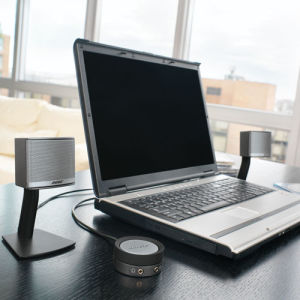As the pandemic forced people to rely more heavily on remote access to products and services, we learned how to successfully navigate these circumstances. In fact, we realized the enormous benefits of conducting business, education, and community outreach via online spaces. The justice system is no exception. We now have a better understanding of how to facilitate remote trials and mediation. So, in this post, we examine some key benefits and tips for those involved in remote judicial proceedings.
What are remote trials?
There are a few different ways to conduct remote trials and mediation, but they all have one common goal: to allow parties involved in a legal proceeding to appear before a judge or jury without being in the same physical location. This can be done by video conferencing, teleconferencing, or even having the proceedings take place entirely online.
Benefits of conducting remote trials and mediation
There are many benefits to conducting remote trials, including:
- Increased access to justice: Remote court trials can make it easier for people to access the justice system, as they do not need to travel to a court location. This is especially beneficial for people who live in rural or remote areas.
- Cost-effective: Remote court trials can save on costs associated with travel and accommodation for lawyers, witnesses and other court personnel.
- More efficient: Remote court trials can help to reduce delays in the justice system, as they do not rely on the availability of physical court facilities or personnel.
Tips for judges presiding over remote trials
Here are tips for presiding over a remote court trial:
- Establish ground rules at the beginning of the trial. Let the parties know what is expected of them in terms of decorum and participation.
- Make sure everyone can see and hear each other. This may mean using video conferencing software or other technology to ensure everyone can see and hear each other clearly.
- Be patient with technology glitches. There are bound to be some hiccups when moving a trial online, so be patient and try to work through them as best you can.
- Keep an open mind. Just because a trial is happening remotely doesn’t mean it’s any less important or serious than an in-person trial.
Tips for attorneys preparing for remote trials and mediation
If you are an attorney, below are some tips for preparing for a remote trial or mediation:
- Get organized and prepared. This is especially important when working remotely and communicating virtually. Make sure to have all your documents in one place so that you can easily access, and become familiar with the technology you will be using for the trial, and there are no surprises on the day of the proceeding.
- Keep an open line of communication. With everyone working from home, it can be easy for miscommunications to happen. Stay in close contact with your client leading up to the trial to make sure they are updated on any changes and that everyone is on the same page.
- Remain flexible. Because so many things are out of our control, it’s important to be flexible in your approach to trial. If there are any unforeseen technical difficulties or last minute changes, try to go with the flow and adjust as needed. The goal is to direct a strong case for your client, no matter what obstacles come up.
Tips for testifying in remote trials
If you’re scheduled to testify in a remote court trial, there are a few things you can do to prepare and make sure your testimony is effective.
- Know the technology. It’s important to understand the technology you’ll be using. Make sure you know how to log into the video conferencing platform the court is using, and test your audio and video beforehand.
- Give clear and concise answers. When you’re testifying, remember that the judge and jury can’t see your entire body, so they can’t easily interpret your body language. Because of this, it’s important to be clear and concise in your answers. Look directly into the camera when you’re speaking, and avoid distractions in your environment.
- Dress appropriately. It’s also important to dress professionally for your remote court appearance, just as you would for an in-person trial. First impressions matter, so make sure you look presentable and trustworthy.
- Prepare for any technical difficulties. If your audio or video cuts out, remain calm and try to troubleshoot the problem. If all else fails, have your attorney contact the court clerk to sort out the issue.
Use the tips above to get the most out of your remote experience. If you’re seeking advanced and user-friendly technology, leverage Aptus’ innovative technology & resources to conduct your remote trials & mediations anywhere across the country. Ready to get started? Contact us to schedule today!









